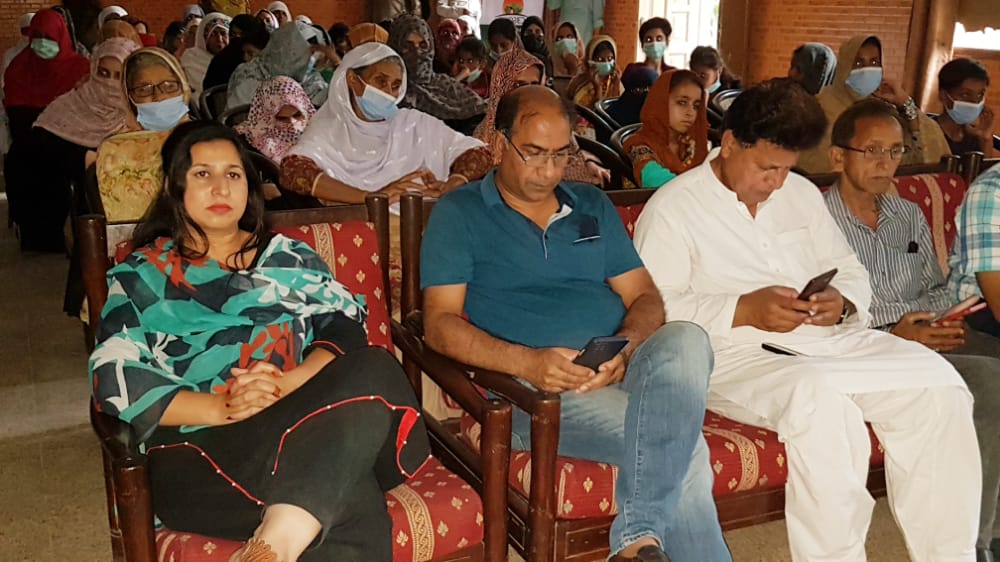Grass root uplift: A local NGO throws 500 agricultural entrepreneurs into market
Shakila Jalil
Rawalpindi: Shirakat, a non-profit organization, with the financial support of donor organizations empowered as many as 419 women and 81 men to develop and become agricultural entrepreneurs.
This success was accomplished in partnership with a local NGO and supported by other donor organizations. In a press conference in Rawalpindi, the Shirakat management shared the progress of the project post-Covid-19, highlighting the recovery of livelihood of women and youth through Agricultural Enterprise Development in Rawalpindi, Muzaffargarh and Islamabad.
Shirakat Executive Director Bilquis Tahira explained how the project focused on supporting the young entrepreneurs with technical and business skills development, vital links to markets and access to financial resources for future growth
With the financial support from the Standard Chartered Bank through the British Asian Trust, the Shirakat Partnership for Development has focused on sustainable livelihoods for women and young agricultural entrepreneurs.
This approach was based on the appreciation that the skills alone are not sufficient to lift marginalized people out of poverty. Access to markets and wider resources, particularly financial, are vital for sustainable growth.

The project mainly aims to address issues aggravated by the COVID-19 pandemic which has had a devastating impact on vulnerable people in Pakistan, particularly women and young people. The economic downturn disproportionately affected the 65 million people working in the informal sectors, for example, agriculture
Women and young people are both predominantly employed in the informal sector in Pakistan (70% of women, 60% of youth), lacking decent working conditions, pay and job security.
Pakistan is facing a severe food security crisis despite producing vast quantities of major staple and non-staple food crops. Women especially are impacted disproportionately already experiencing economic, social and food security.
Pakistan’s agriculture sector was rated as 90 per cent vulnerable to the impacts of Covid-19 by UNDP.
In rural areas, 72 per cent of women and girls are employed in the agricultural sector, primarily as labour. They face a variety of structured gender-based inequalities that prevent their access to skills, resources, and markets.
Improvement In these areas would help to better their livelihood security.

The Covid-19 Pandemic had devastatingly accelerated the pace at which people fell into poverty due to the loss of jobs and lower incomes, particularly those in small businesses. The overall downturn in the economy impacted hugely and disproportionately on people already in the lower economic bracket making it almost impossible for them to even provide for their basic needs.
People in rural areas were at the highest risk of increased food insecurity and poverty post-Covid, with women and children the worst affected (UNDP 2020).
Interventions such as this to improve the livelihood and food security of women and youth in rural areas proved to be vital in helping communities to recover.
Some of the successful beneficiaries of the project were also present at the press conference and thus shared their views regarding the impact of the intervention on their lives.
Mehnaz Bibi, a resident of Pind Sangriyal, appreciated the support given by the project and explained how it provided opportunities for women to have an alternative source of income from the vicinity of their homes.
Agricultural entrepreneur Rubina Bibi from Daultala said that the business opportunity helped her gain confidence and she hoped to expand her business potential by tapping into a wider market.
Shirakat executive director urged the relevant government departments and ministries to replicate this effort and support the rural women in the interest of food security and poverty reduction in Pakistan.

Comments are closed.